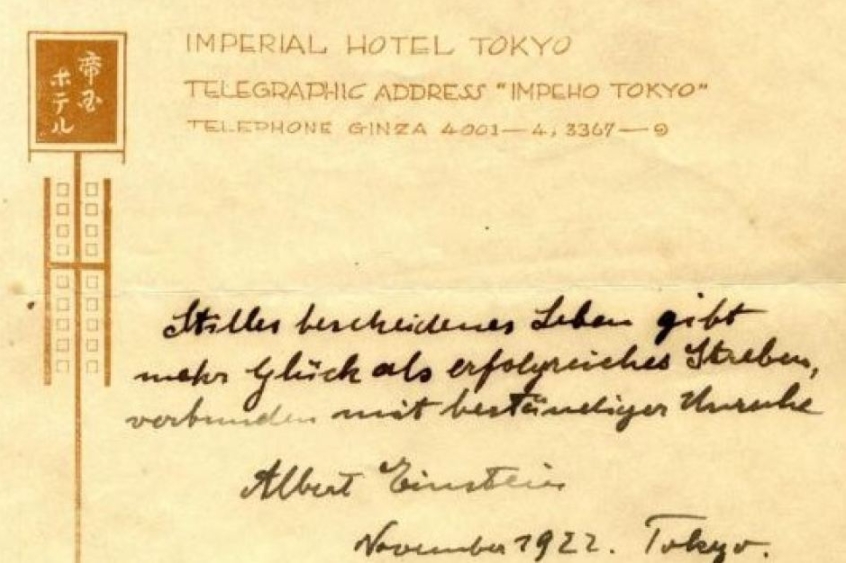It's the stuff of urban legend – the scribbled sketch on a restaurant napkin by an artist who can't pay for his meal sells for millions after he's become famous. On a rather larger scale, a Banksy sprayed on a wall can be worth more than the actual building.
On a similar note, a few scribbled lines by Albert Einstein have just made someone very happy. He wrote them for a bellboy in Tokyo in 1922 when he didn't have cash for a tip, saying they might be worth something one day. They have just been sold for a mind-boggling $1.7 million. Another note reading 'Where there's a will, there's a way,' was sold for over $275,000.

But what words of wisdom in the auction's star lot could possibly be worth so much money? 'A calm and modest life brings more happiness than the pursuit of success combined with constant restlessness,' is what Einstein wrote.
Einstein was not exactly an atheist, though his version of God was far from orthodox; and in his youth he was steeped in the Jewish faith. So perhaps unsurprisingly, his words are surprisingly biblical. They resonate most of all with the book of Ecclesiastes.
In Ecclesiastes, the 'Preacher' extols moderation as a way of living. He says: 'A man can do nothing better than to eat and drink and find satisfactio in his work' (2:24). 'What does the worker gain from his toil?... I know that there is nothing better for men than to be happy and do good while they live' (3:10,12). There are constant warnings about chasing prosperity and success – it's 'vanity and a chasing after wind'. At the end of chapter 5 he says: 'Then I realised that it is good and proper for a man to eat and drink, and to find satisfaction in his toilsome labour under the sun during the few days of life God has given him – for this is his lot' (verse 18).
Einstein's version of this is a 'calm and modest life' rather than the pursuit of success combined with constant restlessness. He may not have been quoting the Bible directly, but its message had sunk deeply into his soul.
Follow Mark Woods on Twitter: @RevMarkWoods













